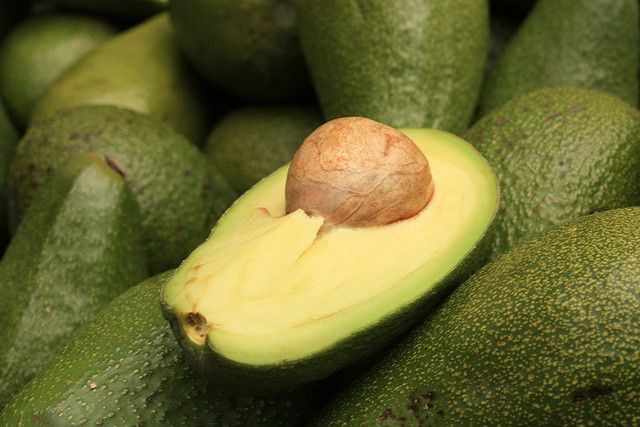Eating Avocados More Than Triples IVF Pregnancy Success Rate

Eating avocados and salad dressings with olive oil triples a woman's chance of getting pregnant through in vitro fertilization (IVF), according to a new study.
Researchers said that foods that are typically eaten as part of the Mediterranean diet, which often includes olive oil, sunflower oil, nuts and seeds, foods that contain high levels of monounsaturated fat, which is better than any other kind of dietary fat for women looking to conceive.
Researchers from the Harvard School of Public Health studied the fat intake of 147 women, who were mostly in their 30s and undergoing IVF treatment, and found that women who ate the highest amounts of monounsaturated fat were 3.4 times more likely to have a child after IVF compared to those who ate the lowest amounts.
However, women who ate the most saturated fats typically found in butter and red meat produced the least amount of good eggs for use in fertility treatment. High saturated fat intake has also been linked to poorer male fertility, including lower sperm counts.
Researchers believe that monounsaturated fats, already proven to protect the heart, may also improve fertility by lowering inflammation in the body.
"The best kinds of food to eat are avocados, which have a lot of monounsaturated fat and low levels of other sorts of fat, and olive oil," lead author Professor Jorge Chavarro, presenting at the European Society of Human Reproduction and Embryology in Istanbul, Turkey, said, according to AFP.
He noted that because the study was small, additional research is needed before doctors should start recommending to latest findings to women trying to get pregnant.
"While these results are interesting, this is the first time to our knowledge that dietary fats have been linked to treatment outcome in IVF," Chavarro said in a statement. "So it is important that our results are replicated in other studies before making strong recommendations about fat intake to women having infertility treatment."
"Different types of fat are known to have different effects on biological processes which may influence the outcome of assisted reproduction - such as underlying levels of inflammation or insulin sensitivity. However, it is not clear at this moment which biological mechanisms underlie the associations we found," he concluded.
The study should be considered preliminary until published in a peer-reviewed journal.



























